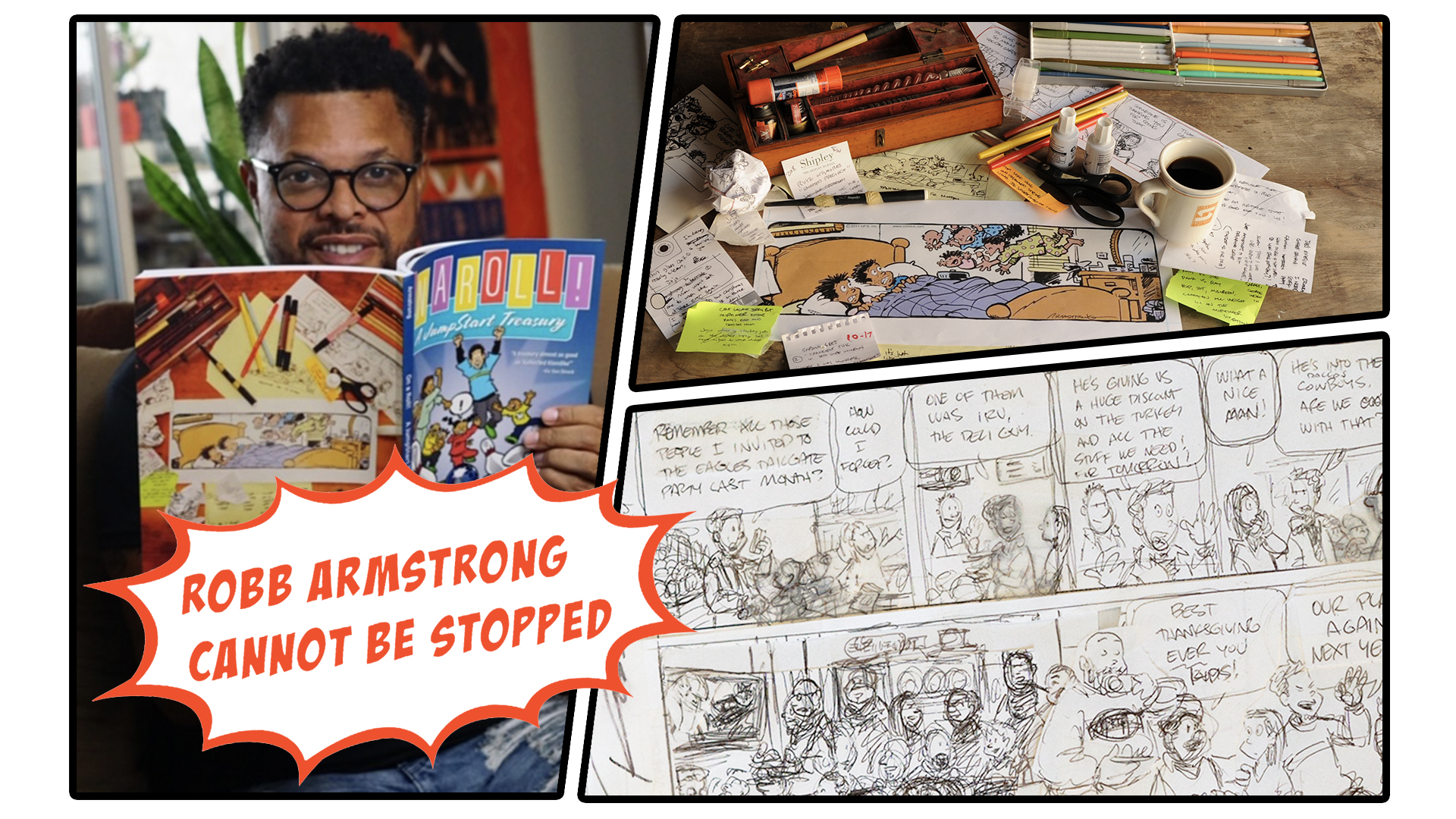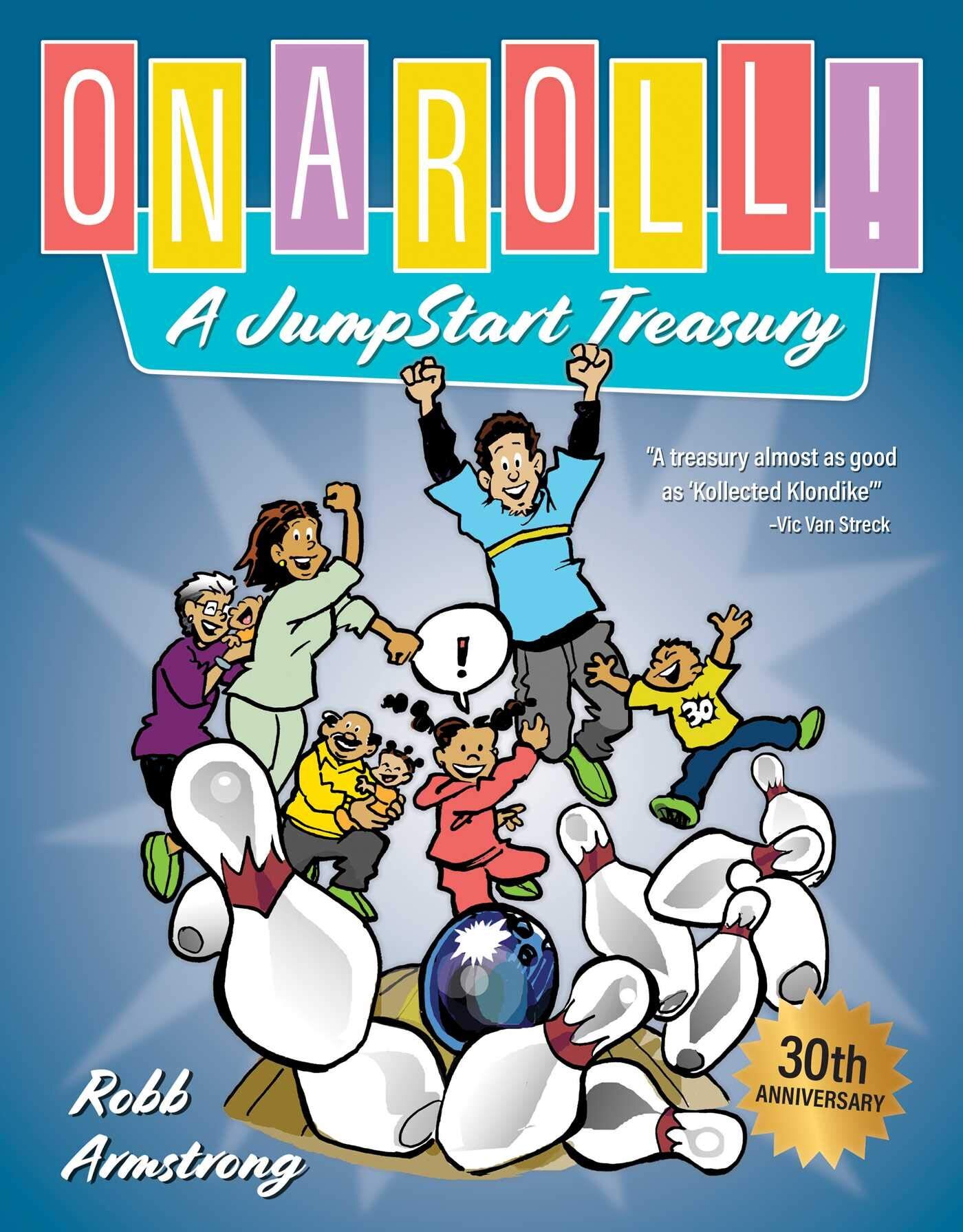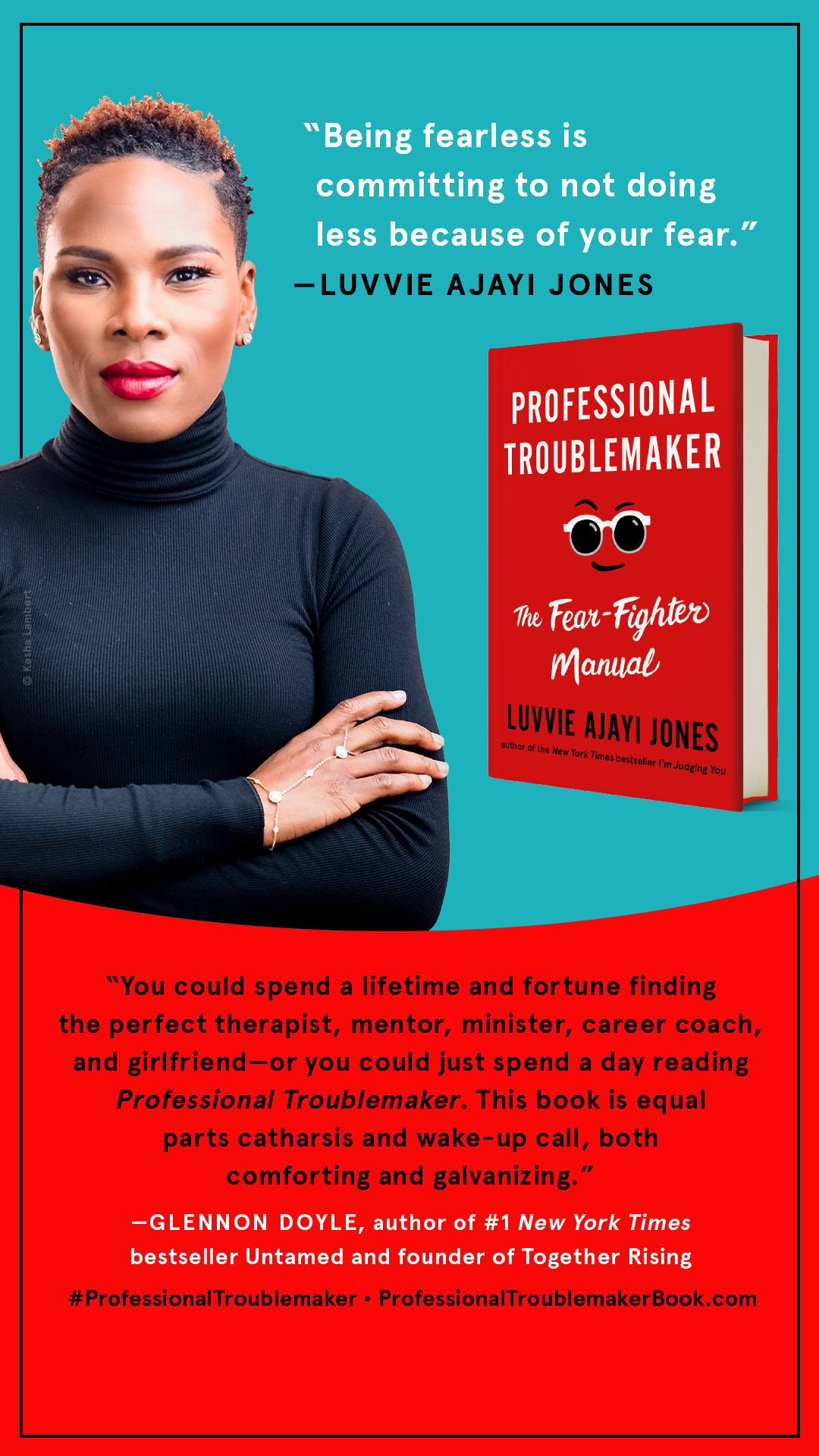Robb Armstrong Cannot Be Stopped
“Adversity is not a dead end, Adversity is the opportunity.”
Written by Jessica Loyd | @byjessicaloyd
 From Pennsylvania, to Syracuse and Los Angeles, Robb Armstrong’s life and career as a syndicated cartoonist is one for the history books. As 2020 rages on, the 100th anniversary of the Harlem Renaissance brings Robb into the class of a new movement that originated just miles north of his hometown. Like many of his peers, Armstrong was influenced by the artists of the Harlem Renaissance, even naming one of his cartoon characters, Romaire, after Romaire Bearden. “Harlem was the jewel in the crown of New York City. That’s where [our culture today] emanated from,” he says. The last few years has produced a tidal wave of Black creatives in all fields, bringing forth cultural shifts that will last a lifetime. We all start somewhere, but legacy never ends.
From Pennsylvania, to Syracuse and Los Angeles, Robb Armstrong’s life and career as a syndicated cartoonist is one for the history books. As 2020 rages on, the 100th anniversary of the Harlem Renaissance brings Robb into the class of a new movement that originated just miles north of his hometown. Like many of his peers, Armstrong was influenced by the artists of the Harlem Renaissance, even naming one of his cartoon characters, Romaire, after Romaire Bearden. “Harlem was the jewel in the crown of New York City. That’s where [our culture today] emanated from,” he says. The last few years has produced a tidal wave of Black creatives in all fields, bringing forth cultural shifts that will last a lifetime. We all start somewhere, but legacy never ends.
Robb’s story is particularly inspirational to me, because it supports the value of artistic autonomy. JumpStart, a now-syndicated comic strip inspired by Robb’s own marriage and family, is his most successful brainchild. To make a life and a living from a 30-year-old idea that you skillfully developed, is the stuff of dreams for an artist like myself, who is steeped in the creative process of my own cartoon and scripts. Created in the 1980s, he continues to write and illustrate JumpStart on a daily basis. You can find its latest iteration as a coffee table book and apparel line titled, On a Roll! A JumpStart Treasury, on RobbArmstrong.com. The strip is evidence of the notion that we can use our immediate surroundings to create at a high level, and that art creates light from life’s darkness. Robb Armstrong emerges as one of the fortunate ones, who can imagine a better world through his art, transforming painful realities into hope-filled stories. “Adversity has been the greatest asset in my life,” Armstrong says. “I cannot be stopped.”
Early in his life, Armstrong’s family suffered two tragedies at the hands of the city of Philadelphia. The environment inspired adversity at every turn; conflict colored the atmosphere with hues of blood-red and police-blue. One of his brothers was taken by a fatal accident on public transit. The other was beaten in an act of police brutality. For years, his Mother, Dot Armstrong, fought for justice against City Hall, and the police commissioner-turned-mayor. Robb describes him as, ‘a Trumpian figure’, named Frank Rizzo.” Yet in the midst of this horror, Robb vividly remembers the historical syndication of Morrie Turner’s, Wee Pals, in 1968. In the year of civil unrest and tragic death including Martin Luther King, Jr., JFK, and Robb’s brother, Morrie Turner emerged as the first Black cartoonist to be nationally syndicated, with an integrated comic strip. Turner’s colorful cast of characters and his seemingly impossible career, left a lasting impression on a young Robb Armstrong.

This deluxe JumpStart treasury celebrates 30 years of one of the most beloved African-American family comic strips in history.
Ms. Dot took note of Robb’s love for drawing characters like Charlie Brown, and others he watched on television. She was determined for Robb to be the one to make it out. Of his Mother’s unrelenting support, Robb says, “She believed in me with every fiber of her being. ‘You ain’t gon’ get this one,’” she said of the system. In an effort to protect him from her legal fight and to invest in his talent, she sent him away from their neighborhood into an enclave of higher learning; The Shipley School in Bryn Mawr, Pennsylvania. Perhaps Ms. Dot’s intentions to preserve her son’s innocence, encouraged him to fully embrace the childlike nature of drawing cartoons, carrying it with him into adulthood. It would seem, it was art that saved him.
Robb then went on to earn a Fine Arts degree from Syracuse University. There, he worked for the school newspaper, where he created the award-winning comic strip, Hector. Hector, a grouchy pessimist, was the polar opposite of Robb’s marked commitment to positivity. As Hector was his first original cartoon, it taught him artistic bravery. “It requires courage to put your work in a form where it’s exposed to criticism in front of your peers,” he says. By way of luck or as a gift for his hard work, a colleague later gifted Robb with Morrie Turner’s phone number. “Here, give this guy a call. He may be able to help you out.”
“Success is when your characters have resonated with readers. You’ve created characters that they care about, characters that seem real.”
Much like Morrie Turner’s ‘Wee Pals’, Robb Armstrong’s ‘JumpStart’ has grown to a cast of more than 30 characters. According to the book description on Amazon, the core is a family led by Joe and Marcy Cobb; “the quintessential young married couple complete with a baby, two busy careers, and eccentric parents. An eminently likable pair, Joe and Marcy juggle their relationship, their jobs-he’s a police officer, she’s a nurse-and raising their daughter, Sunny.” Despite, or maybe because of his family’s experience with police violence, Robb gave JumpStart’s central character, the job of a police officer.
“We all have to look at our hardship and our adversity and realize it’s been put in our lives to strengthen us, not to stop us, or hinder us, or victimize us. I’ve emerged stronger than the average person, and I wanted to portray that strength. I’m just using the family to do it. I’m using these characters, and this family unit to present to the world what it means to have love in your life.”
To Robb, JumpStart’s success is not simply defined by its longevity, but more so by its connection to his audience. He says, “Success is when your characters have resonated with readers. You’ve created characters that they care about, characters that seem real.” One reader even states: “The overriding love of the extended family and friends of [main characters] Joe and Marcy, are so real to me that I feel I know them. I’ve been following the strip since its beginning. It cheers me in a way that is hard to describe.” Creating a sustainable world of characters that penetrates the emotional center of each reader, has only been achieved through Robb’s discipline in the writing craft. Life in Philly gave him a tough skin, but work as a creative developed his internal fortitude for consistency.
“Be disciplined enough to know when it’s time.”
As many of us adjust to this new normal of life and work at home, Robb reminds us to make the most of what’s right within our grasp. How hard would you work if you had no boss? Would you wake up earlier to follow your dreams? Would you know it’s “go time”, as soon as you take your first sip of coffee in the morning? That’s the routine Robb recommends. Long before the age of quarantine, Armstrong worked from home in his underwear. Why not, right? For 17 years, Robb maintained two careers in advertising & writing, ‘JumpStart’, until his comic strip endeavors allowed him to end his job in advertising. Since, he’s been able to keep a level of productivity that has not wavered. His advice to those adjusting to the work-from-home lifestyle: “Be disciplined enough to know when it’s time [to work]. Start your day earlier than if you had a boss there to tell you. You have to be on it all day. Because all of a sudden we’re looking at, wow, there’s nothing between me — there’s nothing stopping me from making it now. I can actually do all the stuff I used to talk about as a dream.”
There is no better proof of Robb Armstrong’s staying power than his journey from 1970s Philadelphia, to today’s new Harlem Renaissance. Culture is not only what we create, but what we learn from one another and the knowledge we leave behind as a legacy, for those who will come after us. With both foresight and confidence in his history, Robb Armstrong dreams aloud; “Maybe 100 years from now, I’ll be in the conversation.”
More than anything else, talking with Robb was an affirmation of the power of my own hands. Creative inspiration is ubiquitous. Being inspired requires nothing of us. It’s a feeling, a spiritual phenomenon, to be frank. But the practical workmanship is the part that calls on us to act, to do, to use that fleeting feeling to produce material evidence of what God has given us. Hearing Robb’s passion for his work and seeing what it’s done for him, made me proud to be on this journey. It fueled the fire in me to plan, to execute, and to believe in what I’m creating for myself. If he can do it, so can I. There’s no more time for second-guessing or giving in to the cares of life that scare us into inaction. My friends and family love to laugh at my notorious mantra; “My favorite thing to do is relax.” My ultimate goal in life is to chill. But, I’ve recently implemented a new life motto. “Discipline is the road to a life of relaxation.” Thank you, Robb.
Robb is a nationally syndicated cartoonist in more than 300 publications. He has received accolades from universities and is flown around the country as a keynote speaker.
Support Robb and be inspired to draw by visiting www.robbarmstrong.com.
Rob Armstrong








